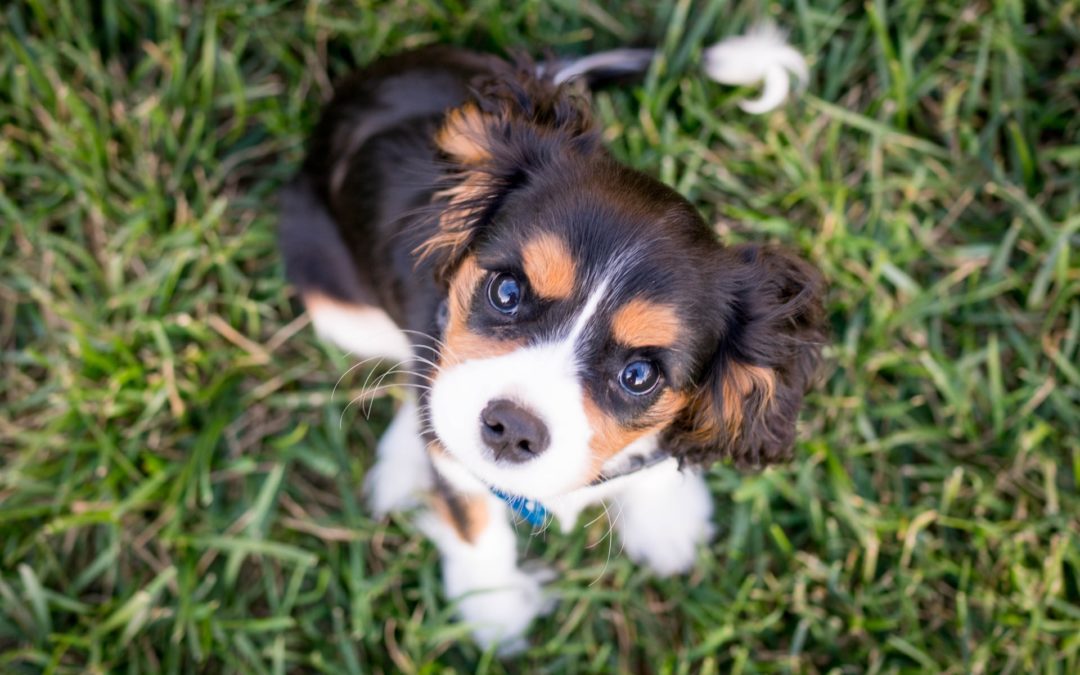Puppy Development and Fear Stages by Dr. Megan Bauer
Puppies go through a socialization phase from about 3 to 14 weeks of age. During this time, they will react to most novel experiences with curiosity, as long as the experience is positive. Making sure that they have lots of exposure to sights, smells, sounds, surfaces, people, and other animals during this critical time will help set your puppy up for success at not being fearful later in life. It is crucial that their socialization experiences be positive – exposure does not necessarily equal socialization and one bad experience can outweigh a hundred good experiences. Experiences that scare your puppy may cause phobias before the fear period even begins.
By the age of 4-6 months old, your puppy will be entering their adolescent fear period. You may notice that your previously confident, curious puppy is now showing hesitancy to approach new objects or people, barking, comfort-seeking, or hiding/retreating. These behaviors are more pronounced in puppies that are genetically cautious or fearful and puppies who were under-socialized, but even puppies who are happy-go-lucky will go through this stage as a normal part of development. Even well-socialized, confident puppies who don’t show overt signs of fear use this as a “decision” period, where they are making life-long decisions about what is safe vs unsafe.
To help your puppy through their fear periods, continue socializing your puppy and allowing them to have positive experiences, while supporting them if they seem cautious or fearful. Your puppy may need additional patience from you during this time. Never punish your puppy for showing signs of fear, or force them into situations they are unsure about, as this can compound their fear and may cause life-long trauma.
Your puppy will enter their last fear period sometime during later adolescence (around 12-18 months of age) depending on breed, size, and genetics. This fear period is usually more pronounced and may last longer than the first fear period. Like the first fear period, we want to support our dogs so that they continue to have positive experiences and help prevent them from making negative core memories. During this period, additional training and desensitization may be necessary.
How do we help? Here at Latah Creek Animal Hospital, we schedule an Adolescent Preventative Behavior around 20 weeks of age, or 3-4 weeks after their last set of vaccines. There are no medical procedures performed at this visit; rather, this is a mini training visit that allows us to teach puppies some crucial life skills for future handling both at the vet and at home. This visit is also very valuable as it provides a positive experience for the puppy’s final visit. This will help set puppies up for a lifetime of success. Since another significant fear period occurs 12-18 months old, we also recommend pre-visit calming medications for each adolescent dog’s 1-year visit, as many dogs, even previously confident ones, can show anxiety at this age. This helps them continue to see the vet clinic as a positive place.
Although all puppies go through fear periods as a normal part of development, phobias and fear-based reactivity are not to be expected. If you notice severe signs of fear, please contact your veterinarian or a positive-reinforcement dog trainer for help as this may be a sign of a more serious underlying issue.

